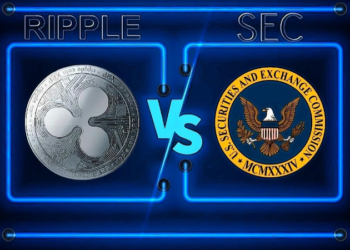In a surprising move, OKX, one of the prominent cryptocurrency exchanges, has recently declared its intention to delist privacy tokens in early 2024. This decision has sent ripples through the crypto community, sparking debates about the implications for users and the broader crypto market.
Privacy tokens, such as Monero (XMR), Zcash (ZEC), and Dash (DASH), have gained popularity for their focus on enhancing user anonymity and transaction privacy. However, this very feature has also made them a subject of regulatory scrutiny due to concerns about potential misuse in illicit activities.
The announcement by OKX comes as part of the exchange’s commitment to align with evolving regulatory standards and ensure a compliant trading environment. The move reflects the ongoing efforts within the crypto industry to strike a balance between privacy and regulatory compliance.
One of the main reasons cited by OKX for delisting privacy tokens is the need to comply with Anti-Money Laundering (AML) and Know Your Customer (KYC) regulations. Privacy coins, by design, obscure transaction details, making it challenging for exchanges to fulfill these regulatory requirements effectively. The exchange’s decision is seen as a proactive measure to avoid potential legal challenges and to enhance its reputation as a compliant and responsible platform.
The impact of this decision is likely to be felt not only by traders but also by the projects behind the delisted tokens. Privacy-focused cryptocurrencies have carved out their niche in the crypto space, catering to users who prioritize financial privacy. The delisting may prompt these projects to reevaluate their strategies and explore ways to adapt to the changing regulatory landscape.
While the move may be viewed as a setback for privacy advocates within the crypto community, it also highlights the growing importance of regulatory compliance in the industry. Exchanges are under increasing pressure to implement robust measures to prevent money laundering and illicit activities, as governments worldwide tighten their grip on the crypto sector.
Investors and traders on OKX are now faced with decisions on how to manage their holdings of privacy tokens. The exchange has assured its users that it will provide ample notice and support during the transition period, allowing them to make informed decisions about their portfolios. Nevertheless, the announcement has triggered discussions about the broader implications for user autonomy and the role of centralized exchanges in dictating the availability of certain cryptocurrencies.
The move by OKX raises questions about whether other exchanges will follow suit in delisting privacy tokens. As the regulatory landscape continues to evolve, exchanges may find themselves at a crossroads, torn between user privacy and adherence to regulatory requirements. The outcome of these decisions will likely shape the future of privacy-centric cryptocurrencies within the broader crypto market.
In conclusion, OKX’s decision to delist privacy tokens in early 2024 marks a significant development in the ongoing dialogue between the crypto industry and regulators. While the move is aimed at ensuring compliance and mitigating risks associated with privacy-focused coins, it also underscores the challenges faced by exchanges in navigating the complex regulatory environment. As the crypto landscape continues to mature, the delicate balance between privacy and compliance will remain a central theme, impacting both market participants and the development of privacy-centric projects.









